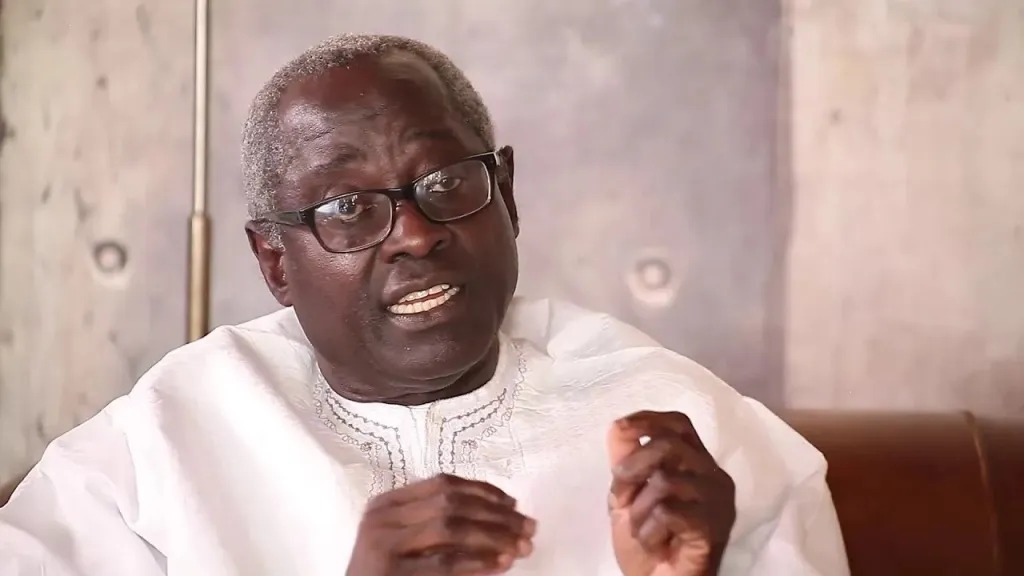Gambiaj.com – (BANJUL, The Gambia) – In an in-depth interview on QTV’s State of Affairs program, Halifah Sallah, Secretary General of the People’s Democratic Organisation for Independence and Socialism (PDOIS), shared his critical perspectives on The Gambia’s current economic policies and the ongoing constitutional reform process. The weekly segment, hosted by journalist Alieu Ceesay, offered Sallah a platform to address his concerns about the country’s political direction, economic sustainability, and sovereignty.
Sallah criticized the government’s reliance on foreign companies for infrastructure projects, cautioning that it erodes national productivity and risks creating long-term financial burdens. He expressed concerns over projects such as Senegambia bridge economic model, arguing that, while beneficial, they are ultimately unsustainable under the current management approach. “When you give your sovereign asset to a company, you’ve lost your own productivity,” he stated. “If the company’s financial foundation collapses, the government might need to increase toll rates, impacting citizens’ access.”
Switching focus to the constitution, Sallah highlighted the critical need for open debate among citizens before any new draft is adopted. Reflecting on Gambia’s transition from a constitutional monarchy to a republic, he emphasized that a new constitution should emerge from collective public engagement rather than partisan interests. According to Sallah, “The constitution is about how we are to be governed. If we do not politicize it, consensus can be achieved.”
Sallah pointed to procedural missteps in the previous constitutional reform attempt, lamenting its failure to secure sufficient National Assembly support. He suggested that a more structured and transparent debate process, involving subject matter experts, religious leaders, and community representatives, would foster a clearer consensus and likely ensure more success. He warned that rejecting a new draft without debate could leave the country under the 1997 constitution indefinitely.
The discussion also touched on Gambia’s reliance on the ECOWAS military intervention force (ECOMIG), which entered the country during the 2017 political crisis. Sallah acknowledged the force’s initial necessity but argued for transitioning to self-reliance in security. He envisioned an empowered national police and navy that could control Gambia’s borders and safeguard sovereignty without reliance on foreign forces.
The interview underscores Sallah’s call for a comprehensive, citizen-driven debate on constitutional reform and a shift toward sustainable economic policies and national security independence. With critical decisions ahead, he urged Gambians to participate actively in shaping the country’s future.










